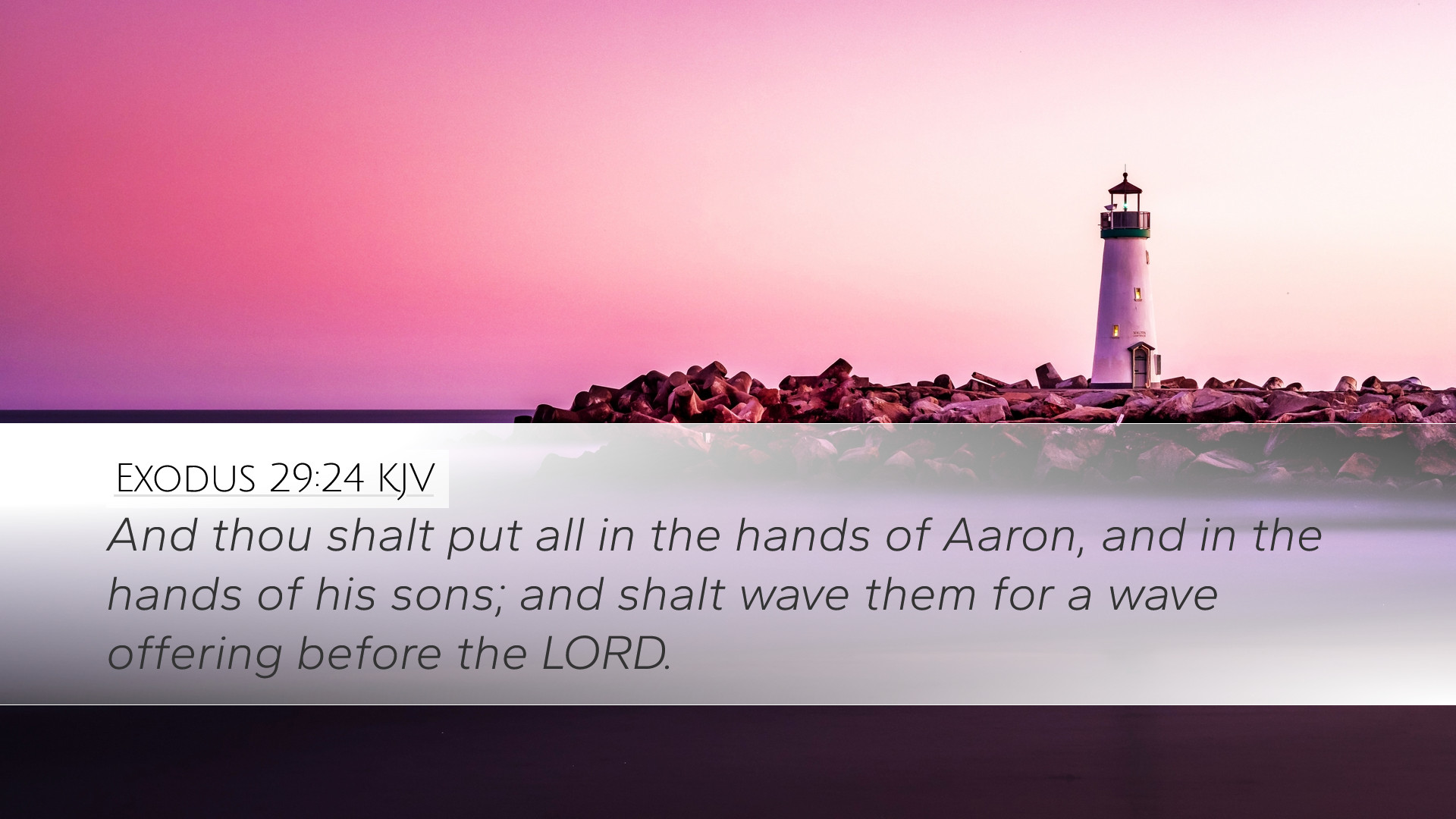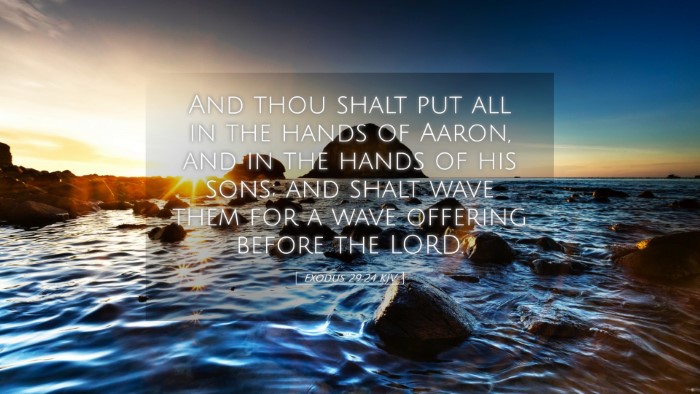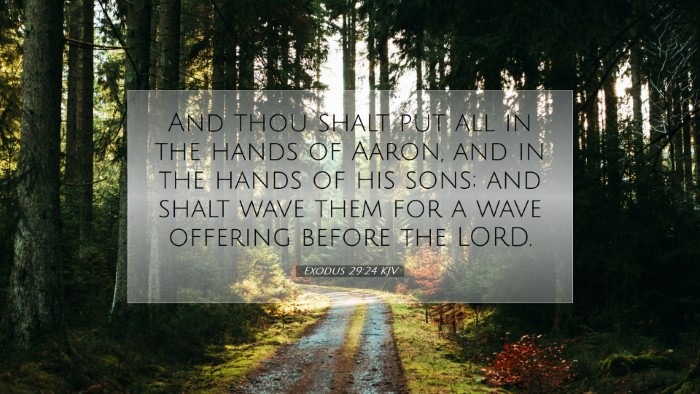Commentary on Exodus 29:24
Verse Context:
Exodus 29:24 presents a significant moment in the ordination ritual of Aaron and his sons, laying the groundwork for the priestly service in Israel. This verse states:
"And thou shalt put all in the hands of Aaron, and in the hands of his sons; and shalt wave them for a wave offering before the Lord."
Historical Background
The context of this verse is critical, as it occurs within the larger framework of the Levitical priesthood's establishment. Aaron, as the high priest, and his sons as priests, are set apart for service in the tabernacle. The specific instructions provided in Exodus highlight the importance of ritual purity, divine selection, and the sacrificial system.
Commentary Insights
-
Matthew Henry's Insights:
Matthew Henry emphasizes the symbolic nature of the offerings presented. He notes that the act of putting the offerings into the hands of Aaron and his sons signifies the transfer of the people’s dedication and service to God’s representatives. The waving of the offerings acted as an acknowledgment of God’s sovereignty and a request for His acceptance.
-
Albert Barnes’ Perspectives:
Albert Barnes draws attention to the ritual significance and public acknowledgment involved in this sacrifice. He explains that this act was not merely procedural but served as a public declaration of Israel’s dependence on God. Furthermore, the wave offering illustrates that the gifts and sacrifices of the people are to be accepted by God through designated mediators. Thus, the act reflects a deeper relationship between the worshipers and the divine.
-
Adam Clarke's Commentary:
Adam Clarke identifies the wave offering as an important expression of recognition and gratitude towards God. He points out that the wave offering representing the people before God signifies their submission and the acknowledgment of God’s provision. Clarke emphasizes the rich symbolism associated with these rites, portraying them as a foreshadowing of the ultimate sacrifice of Christ, where He, as our High Priest, would present Himself as the ultimate offering.
Theological Implications
The act of waving the offerings serves multiple theological purposes:
- Participation in Divine Ministry: This verse illustrates the priest's role in mediating between God and the people. They don't just offer sacrifices; they also represent the people before God.
- Symbolism of Acceptance: The wave offering signifies the acceptance of the people’s gifts by God. It shows that worship is a communal and interactive process where God and His people meet.
- Anticipation of Christ’s Sacrifice: The figures involved in these rites pointed towards the greater fulfillment in Christ. Just as priests offered sacrifices, so Jesus offered Himself, making a way for all humanity to engage with God.
Practical Applications for Pastoral Ministry
For pastors and ministry leaders, Exodus 29:24 offers several practical applications:
- Priestly Role: In serving their congregations, leaders can embrace a role akin to that of the Old Testament priests, interceding for people and leading them in worship.
- Encouragement in Worship: The significance of public acts of worship emphasizes the role of community in the faith journey. Encouraging congregations to actively participate in worship can deepen their connection to God.
- Teaching on Sacrifice: Highlighting the concept of sacrifice in worship can inspire congregations to offer not just material gifts but also their lives in service to God and others.
Conclusion
The instructions in Exodus 29:24 carry profound implications for understanding both the Old Testament sacrificial system and the New Testament revelation through Christ. The blending of historical background, commentary insights, theological implications, and practical applications presents a holistic view of the significance of this verse. Not only does it represent God's covenant relationship with His people, but it also foreshadows the ultimate act of sacrifice that would redefine worship and access to God's presence through Jesus Christ.


